
Singapore has overtaken London as the “global upstart” of international arbitration and is well-placed to deal with the emerging technology trends in dispute resolution, according to observers.
In the latest White & Case and Queen Mary University of London 2021 International Arbitration Survey, Singapore tied with London as the most popular seat of arbitration, ahead of Hong Kong, Paris and Geneva.
Given that the Singapore International Arbitration Centre (SIAC) has only existed for 30 years, its meteoric rise is an “amazing achievement”, said 39 Essex Chambers barrister Karen Gough.
“London has been a hub for international trade for centuries and a global center for arbitration. But while London has an excellent reputation – not least because of its legal infrastructure and facilities to accommodate arbitration hearings – there have been no new developments lately to encourage arbitration in London,” she said.
London’s institutional rules were formed a long time ago. For example, the London Court of International Arbitration (LCIA) was established in 1982 while the International Chamber of Commerce (ICC) began in 1919 and its rules first published in 1922.
On the other hand, SIAC’s arbitration rules were produced in 1991 and are now in their sixth edition.
These rules are, as with all things Singaporean, leading the way with an inclusion of provisions embracing recent legal developments and the practice of international commercial arbitration. The Singaporean courts are also well equipped to deal with arbitration matters, Gough said.
As Singapore’s arbitration environment continues to upgrade both its technological and procedural systems, it will be in a good spot to fix some lagging inefficiencies in arbitration.
National University of Singapore Faculty of Law adjunct professor Benjamin Hughes said when he started practicing as an arbitration lawyer, the in-house counsel tended to hand matters to their external lawyers and then wait for the result. Today, that assumption has flipped.
“The best thing in-house counsel can do is to stay involved throughout the entire process, from constitution of the Tribunal to the final award. Ask to be copied on all correspondence with the Tribunal and the opposing counsel, as though you are part of the legal time running the case – which in many ways you are.
“The cynical view is that by doing this, you are keeping the external law firm honest. But in my experience, most external arbitration counsel are trying to work efficiently to get the best possible result for their clients,” Hughes said.
When it comes to the nitty-gritty of legal work, plenty of little processes also need a lot of cleaning up, Hughes said.
While both document production and witness or expert testimony can be useful tools in an arbitration, they can be a headache-inducing source of pointless wasted time and costs as well.
“In-house counsel can play a vital role in reducing waste in both areas by helping to identify the truly relevant documents for the dispute and the witnesses who can assist the Tribunal with actual first-hand knowledge of what transpired,” Hughes said.
39 Essex Chambers barrister Karen Gough added that overall, in-house counsel should work hard to understand their own cases so they can provide effective support for external counsel and the Tribunal.
More importantly, active participation by in-house counsel ensures that the legal and commercial interests of the company are kept front and center in all strategic decision-making. This can encourage a more pragmatic, cost-effective and commercially sensible approach to arbitration and in settlement negotiations.
“Also, new legal technologies make it easier than ever to clean up prolix statements of case or defense which fail to focus on the real issues in dispute. Inefficient document assembly and management are often issues and speak to a lack of attention and preparation.
“Failure to adhere to timetables and deliberately obstructive tactics towards opposing parties do nothing to advance their clients’ case,” she warned.
National University of Singapore Faculty of Law adjunct professor Benjamin Hughes added that he expects to see Singapore soon surpass London as the quintessential global seat of arbitration.
“It is in a unique position in terms of its location, physical and virtual infrastructure, languages spoken and cultural affinities, neutrality, diversity, legal framework and arbitration talent – including the world-class hearing facilities at Maxwell Chambers.
“Singapore is set to take advantage of Asia’s rise as the center of world commerce. SIAC will only go from strength to strength, with an ever-increasing case load and the expansion of its global footprint with offices around the world. It is an exciting time to be in Singapore,” Hughes said.
In a world characterized by Covid-19 concerns, a more volatile geopolitical landscape and increased polarization, businesses want their disputes to be resolved in a place that offers security, stability and sustainability said Maxwell Chambers chairman Daryl Chew who identified Singapore as a natural choice.
“Singapore has a track record of successfully containing the Covid-19 pandemic, modern legal infrastructure backed by clear and effective laws and a stable business environment, offering a unique blend of predictability and neutrality.
“And from a sustainability perspective, Singapore embraces innovation and works hard to meet the needs of dispute resolution users. This confluence of factors has contributed to Singapore’s emergence as a leading arbitration hub,” said Chew, who is also the Managing Partner of Shearman & Sterling’s Singapore office.
Commenting on developments at Maxwell Chambers, Chew noted that “the Maxwell team adopts a similar ‘client-centric’ mentality and prioritizes regular engagement with tenants and users, to better meet their evolving needs and preferences. These conversations have led to innovative ideas to create new collaborations and synergies that benefit the ecosystem and community of alternative dispute resolution (ADR) users.”
At its 30-year anniversary, SIAC registrar Delphine Ho said the center has much to be proud about and plenty to prepare for.
First on the list is a review of its SIAC Arbitration Rules. The revision will consider recent developments in international arbitration practice and procedure to better serve the needs of businesses, financial institutions and governments using SIAC.
“A number of SIAC overseas offices are also operating now, including in Mumbai, Seoul, Shanghai and Gujarat. Last year, we opened a New York office as well to expand SIAC’s presence in the Americas. Being in these jurisdictions helps us promote international arbitration, raise awareness of SIAC and to foster ties with the local business and legal communities,” Ho said.
Singapore will need this strong foundation to tackle the coming challenges in dispute resolution, particularly the general sense of global uncertainty and new technologies.
Gough said over the past 18 months, Covid-19 disruptions have interrupted cashflow and processes in a drastic way. The wider legal sector is also dealing with labor supply issues along with questions from companies about whether they can claim, negotiate and, if so, how, in what forum and with what strategy?
“The profile of mediation is increasing, perhaps due to the Singapore Convention, but more likely to reflect the sensibilities of the parties in these uncertain times,” Gough said.
“Many now realize that compromise is the way to achieve both payment or relief from liability and to enable projects to reach a satisfactory conclusion even if it’s not the one either the Contractor or the Employer would have hoped for.”
Another key uncertainty factor is new forms of virtual arbitration technology.
The adoption of new technologies to improve arbitration efficiency has been top-of-mind for years, but the pandemic intensified the conversation, Chew said.
“In Asia, I see a rising preference and flexibility favoring less-confrontational modes of dispute resolution, recognizing that protracted legal proceedings take a toll on businesses in terms of time, cost and management bandwidth.
“I expect an increasing number of users to actively explore and adopt mediation, neutral evaluation and other more collaborative forms of dispute resolution in the coming years, much of which can now be facilitated virtually,” Chew said.
In an ideal world, Hughes added, it would still be preferable to conduct arbitration hearings in person since there is no substitute for getting everyone in one room.
“Virtual hearings aren’t all bad, though. The most common fear is that a witness may be coached during a virtual hearing, but this issue can be easily addressed and has not been a problem in any of the virtual hearings I have held,” Hughes said.
Gough said the management of witnesses and expert testimony does need to be carefully planned and supervised to ensure testimony free from external influence or assistance. But she said it is time to prepare for a post-pandemic arbitration world that will be radically different.
Live hearings will likely one day return if they are cost-efficient, said Hughes, but he expects to see many more “hybrid” hearings with both witnesses and experts testifying remotely.
For instance, it will be increasingly difficult to justify moving people and documents across the globe for short hearings, so virtual meetings that may have been an exception 18 months ago will likely become the norm for many hearings.
Live hearings will likely one day return if they are cost-efficient, said Hughes, but he expects to see many more “hybrid” hearings with both witnesses and experts testifying remotely.
“We have seen how well these hearings can be conducted over video conferencing platforms and it is no longer necessarily that a hearing must be postponed if participants can’t make it to a physical location. I think this is a positive development.
“For example, Maxwell Chambers partners with local and international service providers to support virtual hearings, including videoconferencing, document platforms, interpretation and real-time transcription services. The system works incredibly well,” Hughes said.
“So, although it is difficult to travel anywhere today, Singapore remains one of the best places in the world to conduct an arbitration – no matter where the parties, their counsel or the arbitrators are located.”
Chew is optimistic about Singapore’s future and believes the city-state is well placed to continue serving as a global dispute resolution hub near to the economic growth engines of China, India and Southeast Asia.
But its continued success remains contingent on many variables, not all of which are within its control, so it is important for Singapore to continue to work hard and adapt to the changing landscape, Chew said.
“The legal community in Singapore – including the government, the courts, practitioners and in-house lawyers – have always carried that attitude and outlook with them, and that will place us in good stead going forward.”

Maxwell Chambers
32 Maxwell Road, #03-01, Singapore 069115
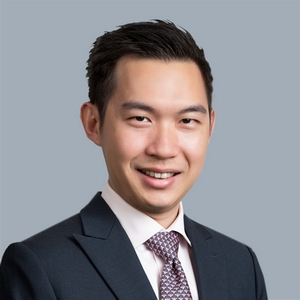
Daryl Chew Daryl Chew is a Partner in Shearman & Sterling’s |
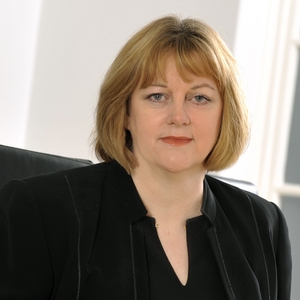
Karen Gough Karen Gough, Barrister of 39 Essex Chambers, a |
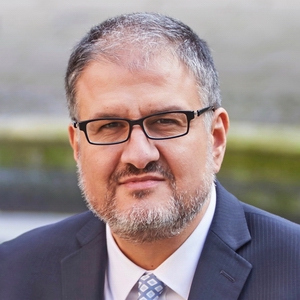
Prof Benjamin Hughes benjamin@hughesarbitration.com Benjamin Hughes is an independent arbitrator |
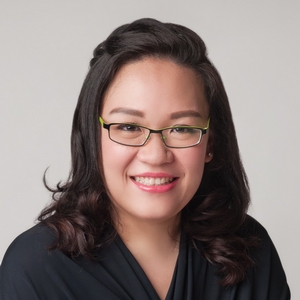
Delphine Ho As Registrar of SIAC, Delphine oversees the SIAC |




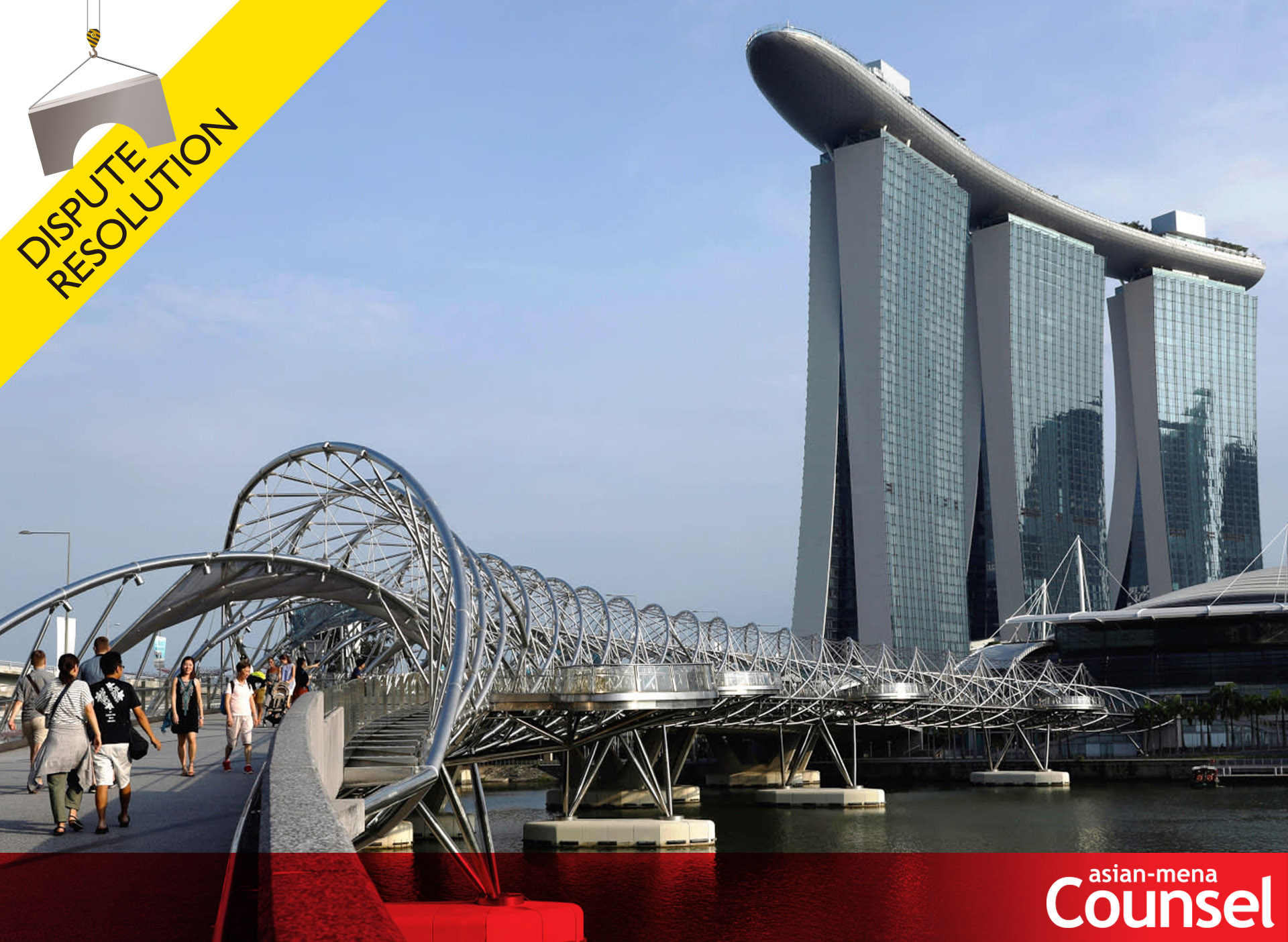



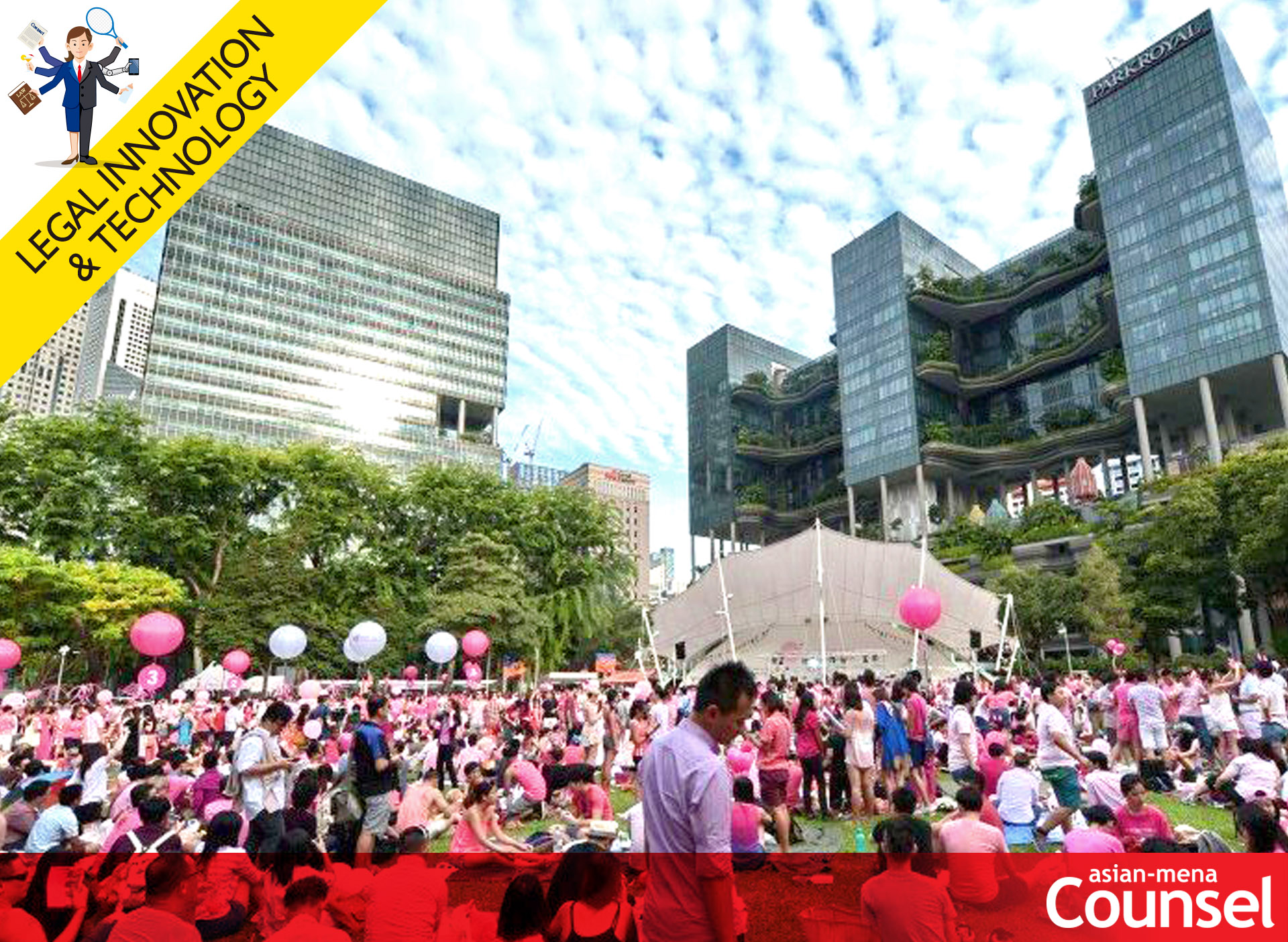





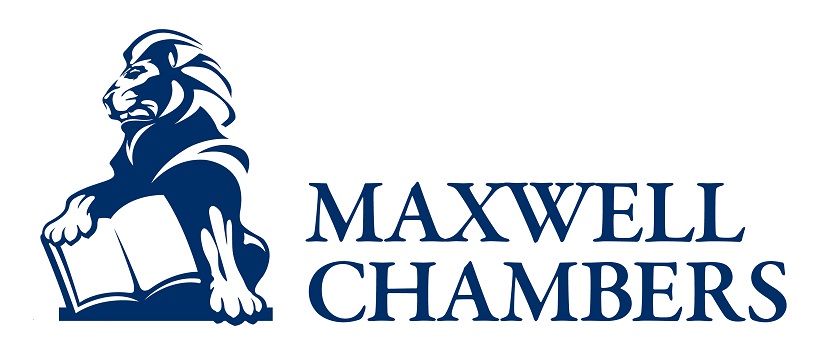 Maxwell Chambers
Maxwell Chambers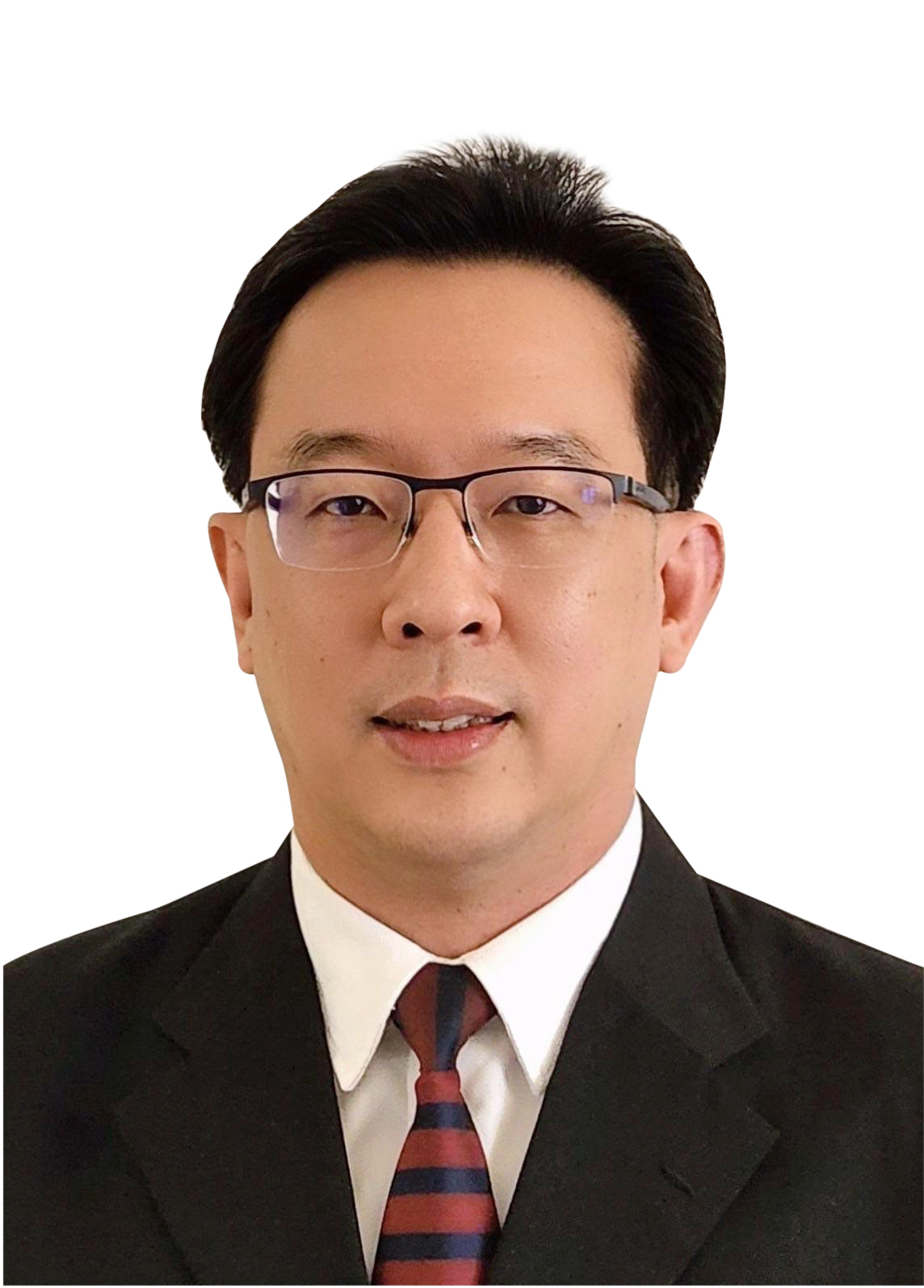 Ban Jiun Ean
Ban Jiun Ean







